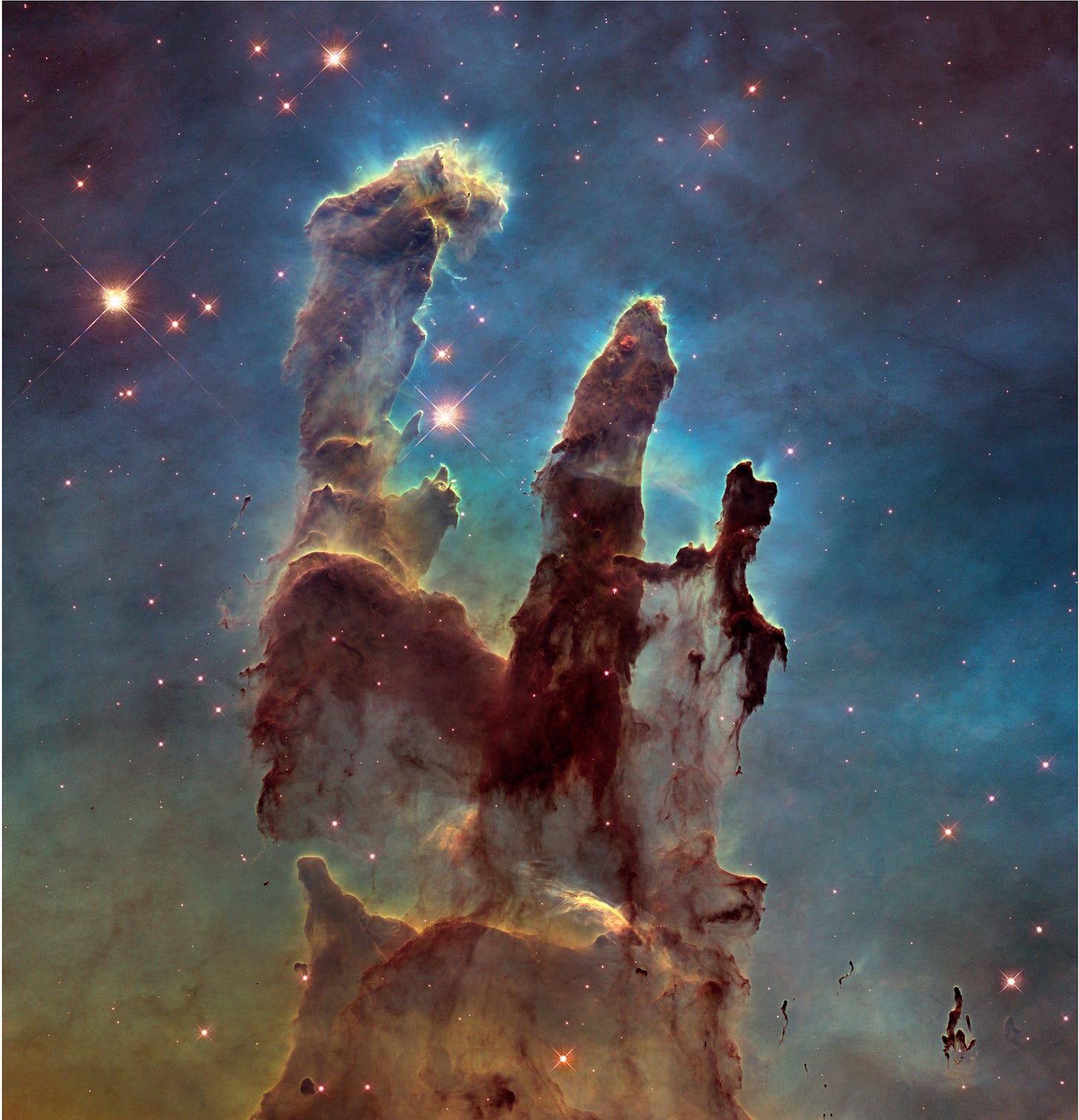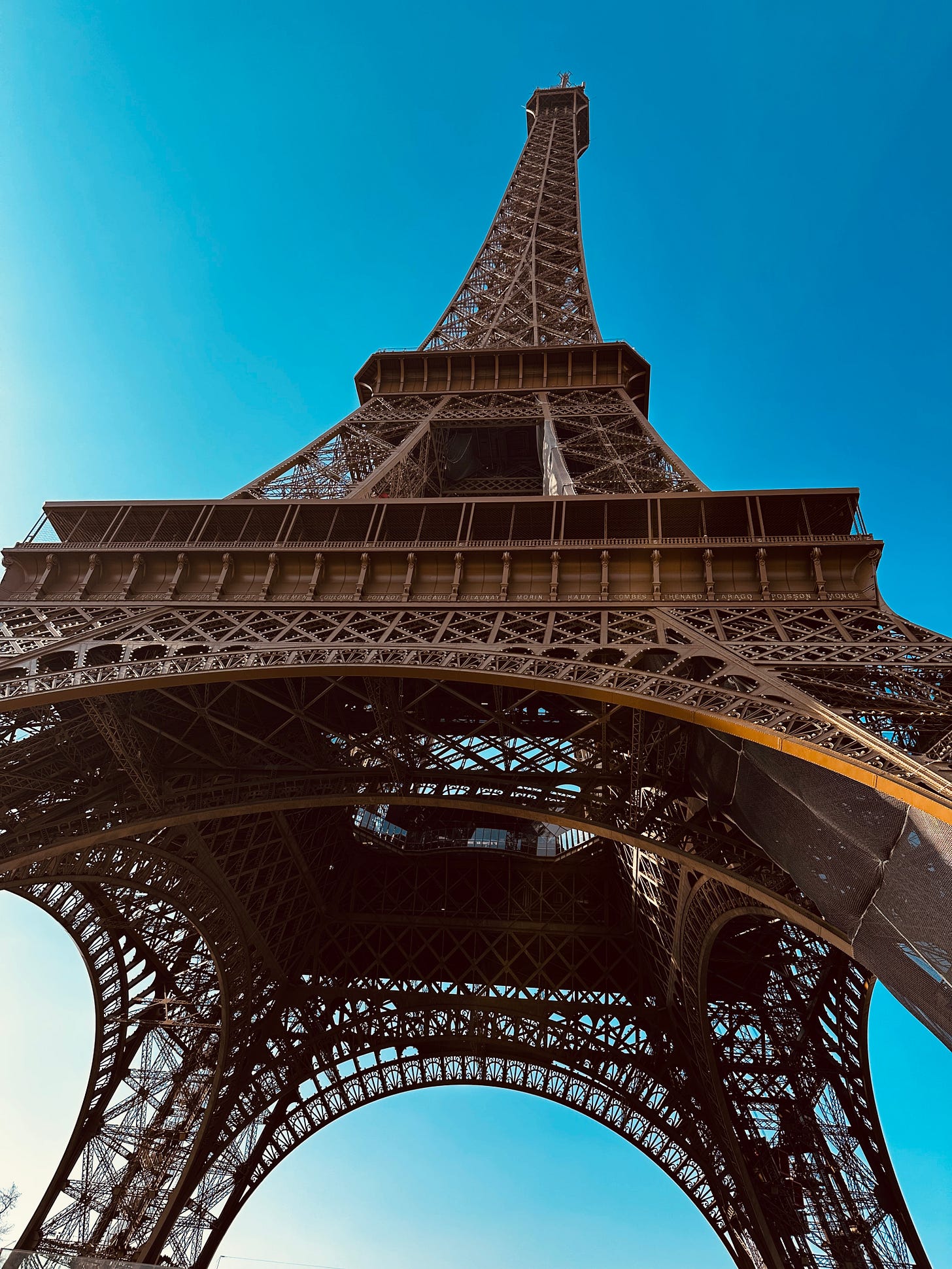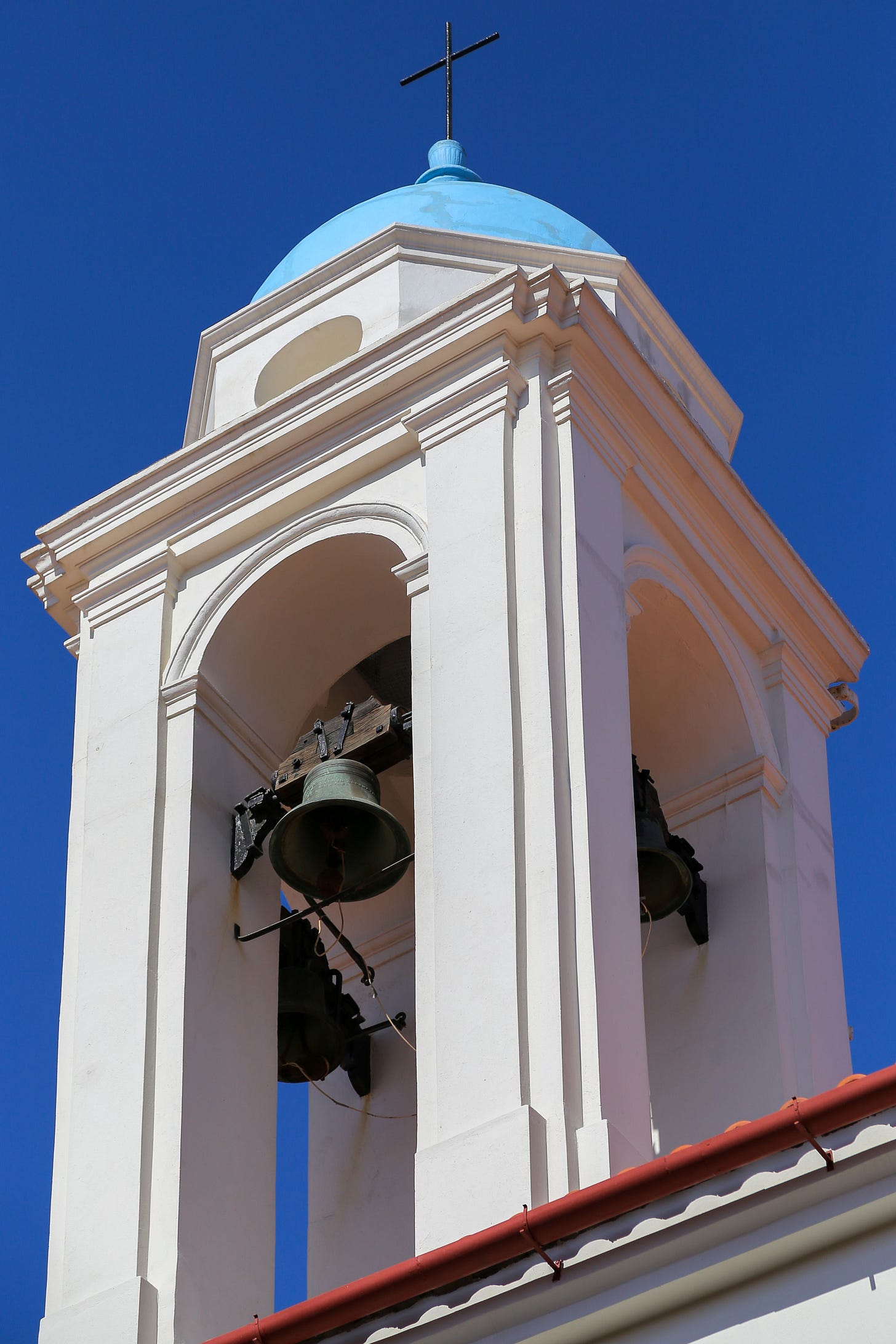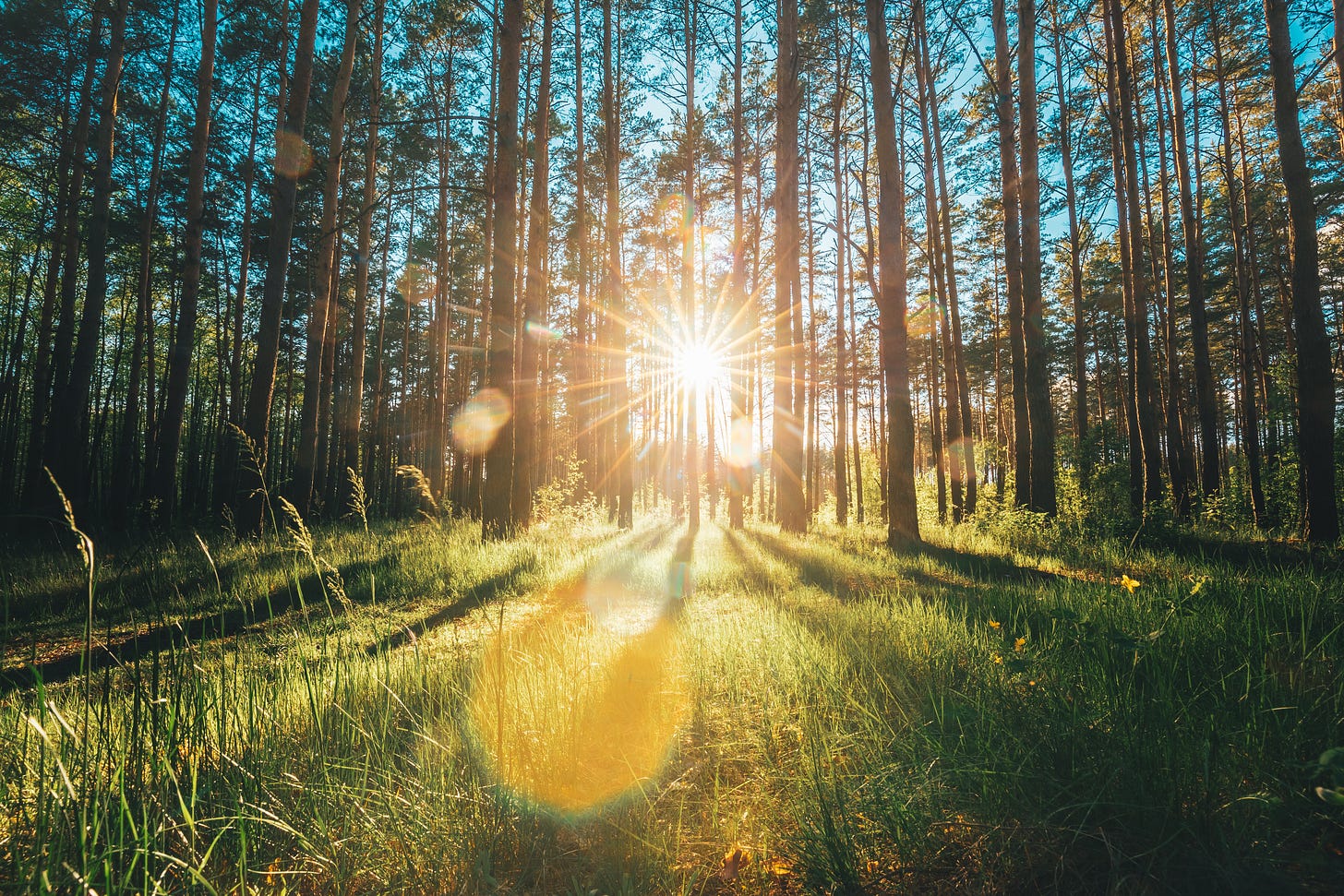You have to wonder.
It's where wisdom begins.
If you hit “❤️ “the at the top or bottom of this email, you will make it easier for other people to find this publication + you will have my appreciation!
Awe is the beginning of wisdom.
We live in a time of confusion, disorientation. Bewilderment. The unravelling of the English language. The death throes of capital “T” Truth.
But there is a strange gift buried in the chaos: the opportunity to do some very basic thinking. What are the values we hold dear? What qualifies as truth? Is capitalism redeemable? Is this way of living sustainable?
At the heart of this lies a single, often overlooked word: awe. Or, for this piece, wonder.
Awe is only three letters, but it holds a universe of meaning. And it's been hijacked.
Let’s start with a story.
A few weeks ago, we went to see Big Yellow Taxi, a Joni Mitchell tribute band. While I generally avoid any kind of tribute band as a matter of principle—the blend of nostalgia and ersatz can be so cloying—the opportunity to hear Joni Mitchell’s songs, in any kind of venue, tipped the scale.
It proved a surprisingly entertaining night. Yes, the refugees-from-Woodstock audience clapped on one and three instead of two and four, sang along with “Big Yellow Taxi,” possibly my least favorite Joni Michell song, and—major disappointment— “A Case of You” was not on the set list.
However, the band was road-hardened pros, multi-instrumentalists who could really play. (There’s nowhere to hide in these tribute bands.) And the woman who, for the night, was Joni Mitchell had an outstanding voice and Joni-like range. For a “cover” band, I would absolutely give them an A.

I was entertained. But I was not awed.
And in fairness, I couldn’t have been. Awe cannot be replicated. The whole premise of a tribute act is to recreate something that already exists. Awe only arrives when something breaks through the familiar. It catches you off guard, surprises you, astounds you.
Real awe.
Rudolph Otto, the German theologian, described awe as mysterium tremendum et fascinans—a feeling of mystery, a touch of fear, and fascination. Real awe suspends time. You don’t check your phone in a moment of awe. Although you might forget to breathe.
But in the digital economy, awe has been systematically co-opted. In fact, co-opting awe was the Holy Grail of the digital economy. Because if awe could be captured, it could be monetized. And if it could be monetized, it could be controlled.
The first step was on-demand everything. But real awe doesn’t show up on command. It must be unexpected. Unfiltered. A little terrifying. You can’t schedule astonishment.
It’s one thing to see photos of the Eiffel Tower. It’s another to stand beneath it, dwarfed, disoriented, stunned into silence by its scale and grace. Real awe shakes you. You can’t get that from a screen.
Side note, another little story.
Overheard conversation heard in a locker room years ago:
“So the wife and I are going to France,” one man says.
“Why the f—k would you do that?” his friend replies.
“I don’t know, Paris. Museums. Eiffel Tower...”
“Seen it.”
“You’ve been to Paris?”
“F—k no. I’ve been to Vegas. Saw it there.”
I am not making this up.
Then came curation—the social media aesthetic of manufactured awe. With our iPhones, we get perfect lighting. Perfect sunsets. Everyone, in their feed, is living The Good Life. So we get an endless scroll of beauty detached from meaning. Awe has become branded and flattened into content.
The apotheosis of awe’s hijacking is not just digital. It’s political.
In our current age, cruelty has been rebranded as spectacle, as if we were living in the Middle Ages. Suffering is used as moral pornography. Where awe once responded to mystery and transcendence, it’s been replaced by sheer vulgarity—gold-plated everything, fake marble, fake hair.
The White House has the aesthetic of a casino lobby repurposed for statecraft. All noise, no soul, no art, no music. Just money.
This is not awe. It’s intimidation dressed in awe’s clothing. The oldest trick in the tyrant’s book: make the people afraid, and call it reverence.
Historically, awe was often tied to violence—public beheadings, bodies broken in the public square, apostates being burned at the stake. Today, it’s still violence, just dressed up in policy and performance. Masked paramilitary ICE agents pulling people out of cars. Up is down, down is up.
Every new act of cruelty is wrapped in a flag and dripping with gold trim.
The result is a kind of spiritual damage.
Our innate capacity for awe—our ability to feel wonder, mystery, terror, and beauty—is dulled. Overstimulated by spectacle, we grow numb. Everything has become BREAKING NEWS. We become consumers of faux-transcendence, always chasing the next high.
Even the ancient texts knew this: “The fear of the Lord is the beginning of wisdom.” (Proverbs 9:10)
Not fear as terror, but the Hebrew yirah—awe, reverence, the trembling awareness of something greater. The ancients understood what we’ve forgotten: that true wisdom begins not with certainty, but with wonder. With humility in the face of the vast.
And here begins resistance: the reclamation of real awe.
Not awe as content. Not awe as political spectacle. But awe as encounter, as the sacred breaking through.
I recently had a rare moment of true, unmediated, out-of-the-blue awe. I was preaching at the closing service for the small Congregational Church in the town where I live. Being the preacher is a lot like being the emcee. You need to make sure people know the page the hymn is on, that the lay readers get up to the lectern in time, that the collection goes off smoothly, and—not a small point, I suppose—that the sermon lands.
Little secret: awe almost never occurs, for me, during a service. My mind is too pre-occupied with the show.
But this day, as part of the closing service, the church bell, the big steeple bell, was rung once for the last time. This church was founded in 1765, so this is the bell (or a later version) that would have been rung to call the militia to Bunker Hill in 1775, Ticonderoga in 1777, to announce the end of the Civil War, World War I, World War II, and John F. Kennedy’s burial. It also accompanied married couples down the aisle, underscored coffins wheeled through the front doors.
The overtones extended for a long time before finally being absorbed into the silence, connecting the past with the present moment.
Out of the blue, I felt wonder—awe. It snuck up, took me by surprise, brought me to that ego-less state where all is connected.
Awe is always a surprise.
Awe doesn’t announce itself. It doesn’t advertise. It is the hush in a forest when the snow begins to fall. The moment a voice sings what you didn’t know your heart had been waiting to hear. The catch in your breath when beauty finds you unprepared.
Otto was right. Mysterium tremendum et fascinans. That which terrifies and attracts, overwhelms and draws you in. Awe changes you, if only briefly, for the better.
To reclaim awe is not to return to superstition or sentimentality. It is to return to the real. To defend the fragile places where mystery still dwells. To sit with the unanswerable—and allow it to undo you.
While the abominable polish their thrones, let us find other places to gather.
In sanctuaries, in forests, at dinner tables, under the night sky overwhelmed by the enormity of the universe.
In times like these, you have to wonder. It’s a matter of survival.
Thanks for reading.
This piece will drop on Friday, so here’s a little preview.
“The Far Side of Goodbye”—this idea of “absence” has proven to be particularly fertile for me. I’m working on the last piece now, “In the Quiet, After.”
But then, I have some Beatles in the works. Stay tuned.
🔔 Enjoyed this? If this stirred something in you (existential dread, recognition, the urge to throw your phone into a river), consider subscribing — it’s free, and it helps me keep writing through the noise.
🥶 Know someone else dancing on the edge of collapse? Send them this piece. Or post it on Bluesky, Facebook(!), or wherever humans still congregate.










Thanks for reading, Patricia. I appreciate it.
And your words remind me of how important being attentive is. "Attention is prayer," Simone Weil said. And that, I think, makes us more open to awe. (Though still, a kind of divine crap shoot 😀)
Fabulous, John. I just featured this in Bluesky. I'm glad to restack as well. Awe is one of my themes and favorite stories to write about. The sources are endless, and we writers adore bottomless sources of inspiration to fuel the next story, the next piece.